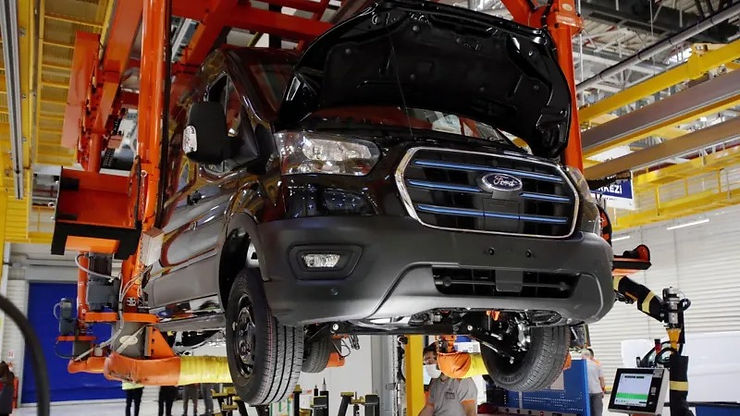Ford Announces Job Cuts Amid Weak Electric Vehicle Demand
- Geeshan Mudalige

- Nov 23, 2024
- 2 min read
By G. Mudalige, Jadetimes Staff
G. Mudalige is a Jadetimes news reporter covering Technology & Innovation

Ford has revealed plans to cut 800 jobs in the UK over the next three years as part of a wider restructuring strategy, which will result in the elimination of 4,000 positions across Europe. This decision comes in response to challenging market conditions, including increased competition and weaker-than-expected demand for electric vehicles (EVs). Despite the cuts, Ford’s manufacturing plants in Dagenham and Halewood, as well as its logistics base in Southampton, will remain unaffected. The company aims to implement the reductions primarily through voluntary redundancies.
Lisa Brankin, Managing Director of Ford of Britain and Ireland, expressed regret over the decision, acknowledging its significant impact on employees. However, she emphasized the necessity of the restructuring to navigate current economic headwinds. Ford, which employs 5,300 people in the UK, plans to focus the reductions on administrative and product development roles, leaving its manufacturing operations largely untouched.
The automotive sector in Europe is facing considerable disruption, with high energy costs and intensifying competition from Chinese manufacturers adding pressure. Ford's announcement follows a similar move in 2023 when the company cut 1,300 jobs in the UK, primarily at its research and development hub in Dunton, Essex. This latest restructuring marks a continuation of its effort to adapt to a rapidly evolving market.
The company’s transition to electric vehicles is a key factor driving these changes. While Ford has invested heavily in EV technology, including developing a major new electric motor facility at its Halewood site, it has encountered obstacles. Demand for EVs has not met expectations, forcing manufacturers to offer steep discounts to attract buyers. Additionally, stringent government regulations, such as the Zero Emission Vehicle (ZEV) Mandate, require 22% of cars sold this year to be zero-emission, with increasing quotas set for the coming years.
Carmakers argue that these targets are overly ambitious given current market conditions. Despite rising EV sales—accounting for one in five new cars sold in October—manufacturers claim that the demand remains insufficient to justify the rapid shift. They are urging the UK government to ease quotas or increase taxpayer-funded incentives to stimulate consumer interest and expand charging infrastructure.
However, not everyone agrees with calls to relax regulations. Vicky Read, CEO of Charge UK, argues that weakening the mandate would be a step backward. She insists that the policy is driving progress and that the government must maintain its commitment to the 2030 transition deadline for phasing out internal combustion engines.
The job cuts and broader industry challenges highlight the difficulties of balancing ambitious environmental targets with economic realities. Ford’s move to streamline operations underscores the pressures facing traditional carmakers as they attempt to reinvent themselves in an increasingly competitive and eco-conscious market. The outcome of ongoing negotiations between industry leaders and government officials will likely shape the future trajectory of the UK’s automotive sector.
By focusing on efficiency and adapting to evolving market demands, Ford aims to position itself as a key player in the shift toward sustainable mobility. However, the challenges ahead signal a turbulent road for the industry as it navigates the complexities of electrification and regulatory compliance.































Comments